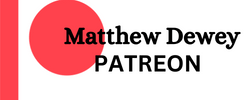Latest Writing Video! |
|
Too many writers around the world struggle to write their novels. It’s understandable, every writer struggles with their first book. However, that doesn’t mean you can’t develop the habits of an effective writer as soon as possible. Over the years I have formed my own habits and so have other writers, but a lot of us share similar habits that make us more productive and overall, better writers. Let’s take a look and learn together! Dreaming is Not Planning, Planning is PlanningToo many writers go into their book thinking their months of dreaming are planning enough. As many times as you ran a scene through your head, it is not enough to write a book on. All writers dream their amazing stories, picture their characters and even construct an intricate back-and-forth dialog. However, the moment the fingertips grace the keyboard, the mind only has so much to put down on paper. Months of dreaming are nothing compared to a week of planning. A writer with a ready mind can take a couple pages with pen in hand and jot down a plan, a structure, developing what they have dreamt into something more. A great habit is simply including this prep stage before the actual writing. The planning involves postponing the story a few days, a week or even a month if your story is so lengthy and complex. Planning does your story a world of good and increases your chances of actually finishing the book. The benefit of planning is you can start anytime you want to. Writing requires time, a lot of it, which needs to remain consistent without too many breaks in-between writing sessions. Planning you can start now and if you are an eager writer, I recommend you do. Trust me, I don’t mind you leaving the article now if you’re already pumped to get started! Personal note: I found even planning can be rushing. My eagerness has often pushed me to rush the prep stage and jump straight into writing. As I wrote I needed to salvage the story a lot by giving my characters a deeper story, adding depth to their background. If you want to make the most of your planning, I personally recommend you take an extra day the moment you think you finished your planning. Go over your planning, see if there is anything you might be interested in adding. If nothing comes to mind straight away, you have some great structure to write with! Writing in the Morning, Groggy and YawningA common habit I notice in productive writers is to write in the morning. Simple enough to remember, but can be challenging to get into if you are not writing full-time. In the morning, while you are drinking your coffee, you are in a groggy state with a mess of thoughts running through your mind. Some are nonsensical, others are concerned with the days events, but there are certainly some creative ideas buzzing around. Morning writers push to write as much as they can in the time they have after waking up. It’s a surprisingly simple habit to get into, similar to that of making your bed once you’re up. Personal Note: I enjoy writing in the morning, usually the short stories for my blog or some planning for an article, such as this one. However, I personally write in the afternoon and evening. I find myself feeling more awake at this time. However, I can concede that I am more productive in the morning. My thoughts are far more clear, where as in the afternoon or evening, my mind has calmed down. I take moments to ponder my writing, decided on how to phrase something better. I believe if I used my mornings for writing my novels I would be far more productive. Develop a Writing Work EthicEffective writers approach their writing similar to any other person approaching their work. With a sense of respect, not necessarily formal, but respect nonetheless. Writing is work, plain and simple. Those passionate about their writing and experienced in the field can easily take the old saying, ‘Do what you love and you will never have to work a day in your life” and throw it in the trash. No matter what you do, whether you love it or not, becomes work eventually. You wish to succeed, make a career from your writing, thus you need to have a work ethic when it comes to your writing. What this means is you put off any distractions or relaxing hobbies for a certain amount of time everyday in order to dedicate that time to writing. Whether you write for yourself or for others, your schedule should be fairly similar. If you write as a hobby, you need to dedicate time to your writing. If you write for a living, you need to dedicate even more. As I stated earlier, a week of planning is better than months of dreaming. Well, regular time spent writing is far better than writing every ‘now-and-then’. Personal Note: A habit which applies to me completely as I write for myself and for others. Articles, short stories, novels and such take a fair amount of time and thus I had to approach my work with a better sense of what I was doing. I am working, so I need to work. Writing is still a relaxing career, but it certainly isn't a lazy one. At least, not if you want to succeed as a writer. As You Create, You Must PromoteAny business today requires a certain measure of marketing to stay afloat. The average consumers depends on that marketing as much as the business, so everyone wins. However, nobody wins if you don’t put your product out there for all to see. You are a writer, what you write is the product. You will find that by simply creating the product you won’t get many sales straight away. That’s where the second-half of the writing career begins. You must now devote yourself to growing your name and promoting your book. You can promote your book a many number of ways. Some will get you to where you want faster than others. Like all things in life, nothing is free. Everything costs you something, even if it isn’t money. Luckily, some targeted advertising does cost money if you want instant results. Your advertising needs to be regular, but it will be worth your while as you build up a following. Of course, you can promote yourself and your work many other ways and not just through the event. Taking part in writing events, creating videos, social media accounts and perhaps starting a blog. Collaborating with other writers, working with more experienced writers and taking advantage of those connections. That is how you start making sales, by painting a bright, shining picture for the world to see. Personal Note: As an entrepreneur, marketing my work has always been a challenge, but certainly not as great of a challenge as it was in the beginning. I worked to make myself more ‘clickable’ to a wide market and it didn’t do so well. However, once I focused on the kind of person who I was writing for, it all came down to the content. Soon I developed a followed and that followed helps support me every day. The personal point I want to push towards you here is to find who you are writing for. Simple saying, ‘adults’, ‘young adults’ erc is not enough to get your business going. Find your market, ask them questions and learn how to identify who will buy your book. Once you have that information, it’s only a matter of time and effort. Everybody Has One Great Book in Them, |







